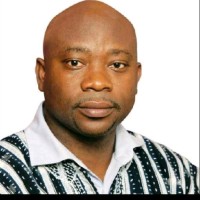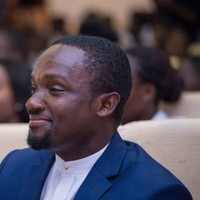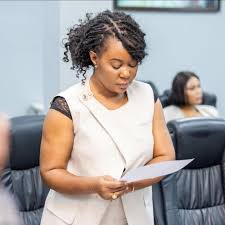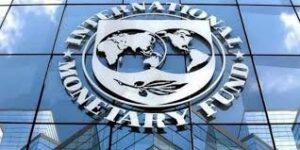Kwamena Duncan Accuses NDC ‘Looters and Attackers’ of Taking Over Ghana
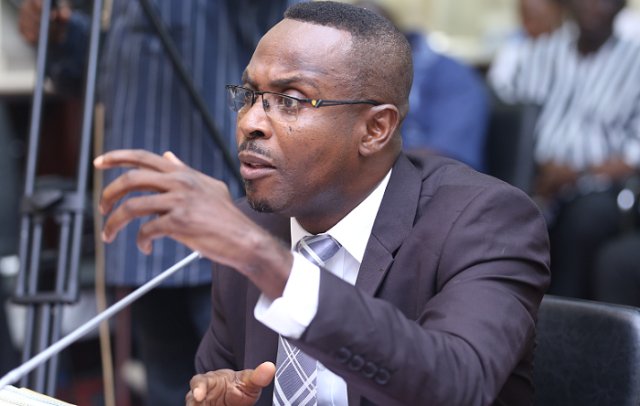
Kwamena Duncan, a prominent figure from the New Patriotic Party (NPP), has strongly criticized the National Democratic Congress (NDC) for the violence and property destruction that occurred after their victory in the 2024 elections. Following the election win by NDC’s candidate John Dramani Mahama, several NDC supporters engaged in acts of vandalism, looting, and attacks on both state and private properties, which were widely condemned by various political figures.
The disturbances began when a group of NDC supporters reportedly attacked an Electoral Commission (EC) office in Ayensuano, located in the Eastern Region of Ghana. They also targeted warehouses and storage facilities containing essential food items, looting and causing significant damage. In addition, they destroyed billboards belonging to Dr. Mahamudu Bawumia, the Vice President and leader of the NPP. The violent actions caused widespread concern, leading to the intervention of security forces, including the police and the military, to restore order.
Another worrying incident involved a group of individuals, allegedly NDC supporters, attempting to breach the premises of the Ghana Ports and Harbours Authority (GPHA). However, their attempt was thwarted by the military, preventing further escalation of violence.
On Peace FM’s popular “Kokrokoo” show, Kwamena Duncan vehemently condemned these actions, holding the NDC leadership and President-elect John Dramani Mahama accountable for inciting the violence. Duncan described the actions of the NDC supporters as acts of rebellion, asserting that the NDC had encouraged this behavior by stoking their followers’ anger and frustration. “Rebels have taken over,” Duncan declared, emphasizing his belief that the NDC had stirred up their supporters to commit such violence, regardless of whether the situation warranted it.
Duncan went on to question the logic behind the NDC’s victory, pointing out that while they had won the election, their supporters still resorted to violence and destruction. He expressed disbelief that after the democratic process of voting, a peaceful act of casting ballots to choose leaders, the result was such chaos and disorder.
Duncan also expressed deep disappointment at the state of affairs, reflecting on the promises made during the election campaign. He pointed out that Ghanaians were urged to unite for the good of the country and to strive toward a more prosperous future. Yet, he questioned whether this was truly the outcome envisioned when people were asked to work together for the betterment of Ghana. The violent actions, he suggested, contradicted the message of unity and peace that was supposed to follow the election result.
The NPP figurehead also voiced his concern for the safety and security of Ghanaians, particularly in the aftermath of the election. He noted that if these violent incidents became a norm after elections, they would lead to a sense of insecurity among the public. Duncan suggested that there was no justifiable reason for the chaos, and he questioned the wisdom of participating in future elections if the result led to such widespread violence and fear.
The disturbances that followed the announcement of Mahama’s victory have sparked a wider debate about the role of political parties in maintaining peace and order after elections. Critics argue that political leaders must do more to ensure that their supporters behave responsibly, especially in moments of heightened tension following an election. The NDC has yet to publicly address the incidents or offer a response to Duncan’s remarks.
In light of these events, many Ghanaians are concerned about the integrity of the electoral process and the potential for future violence if such actions are not condemned and addressed decisively by all political parties. The political climate in the country remains tense, and calls for stronger measures to prevent post-election violence are growing louder.
Duncan’s remarks are part of a broader conversation about political violence and its impact on the democratic process in Ghana. While some view these events as isolated incidents, others argue that they reflect deeper, systemic issues within the country’s political culture that must be addressed to ensure the future stability and progress of Ghana.
As the situation continues to unfold, it remains to be seen what steps will be taken by the NDC, the NPP, and other political leaders to restore peace and address the underlying causes of the violence. One thing is clear: the need for responsible leadership and a commitment to peace is more urgent than ever in ensuring the long-term well-being of the nation.


